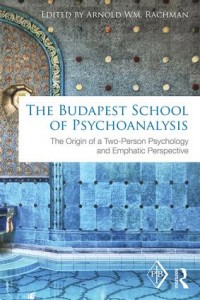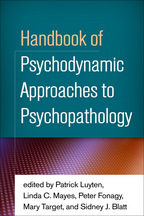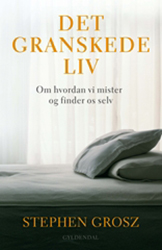 Shared Traumas, Silent Loss, Public and Private Mourning
Shared Traumas, Silent Loss, Public and Private Mourning
This book aims to question the junctions of the private and the public when it comes to trauma, loss, and the work of mourning – notions which, it is argued, challenge our very ideas of the individual and the shared. It asks, to paraphrase Adorno, ‘What do we mean by “working through the past”?, ‘How is a shared work of mourning to be understood?’, and ‘With what legitimacy do we consider a particular social or cultural practice to be “mourning”?’ Rather than aiming to present a diagnosis of the political present, this volume instead takes one step back to pose the question of what mourning might mean and what its social dimension consists in. Contributors reflect on the trauma of the Holocaust, the after-effects of the Vietnam War in the US, the Lebanese war-torn experience, victims of the Pacific War in Taiwan, and the Chilean dictatorship.
Læs mere bestil bogen: Klik på billedet
Thomas Ogden : Reclaiming Unlived Life
 In Reclaiming Unlived Life, influential psychoanalyst Thomas Ogden uses rich clinical examples to illustrate how different types of thinking may promote or impede analytic work. With a unique style of “creative reading,” the book builds upon the work of Winnicott and Bion, discussing the universality of unlived life and the ways unlived life may be reclaimed in the analytic experience. The book examines the role of intuition in analytic practice and the process of developing an analytic style that is uniquely one’s own.
In Reclaiming Unlived Life, influential psychoanalyst Thomas Ogden uses rich clinical examples to illustrate how different types of thinking may promote or impede analytic work. With a unique style of “creative reading,” the book builds upon the work of Winnicott and Bion, discussing the universality of unlived life and the ways unlived life may be reclaimed in the analytic experience. The book examines the role of intuition in analytic practice and the process of developing an analytic style that is uniquely one’s own.
læs mere/ bestil bogen : klik på billedet
____________________________
Of Things Invisible to Mortal Sight:
Celebrating the Work of James S. Grotstein
 Dr James Grotstein (1925–2015) was the foremost Bion scholar, and one of the most noted and honoured psychoanalysts in the world. His prolific writings and generous encouragement to other analysts has had an enormous impact. He was among the first to examine Bion’s most controversial concept – O – in particular the mystical aspects of O. The title of this book, Of Things Invisible To Mortal Sight: A Celebration of the Work of James S. Grotstein, inspired by a line from Milton’s Paradise Lost (Book III), reflects Grotstein’s decades-long examination of the most profound aspects of the human mind.
Dr James Grotstein (1925–2015) was the foremost Bion scholar, and one of the most noted and honoured psychoanalysts in the world. His prolific writings and generous encouragement to other analysts has had an enormous impact. He was among the first to examine Bion’s most controversial concept – O – in particular the mystical aspects of O. The title of this book, Of Things Invisible To Mortal Sight: A Celebration of the Work of James S. Grotstein, inspired by a line from Milton’s Paradise Lost (Book III), reflects Grotstein’s decades-long examination of the most profound aspects of the human mind.
Editor: Annie Reiner Karnac Books 2016
læs mere/ bestil bogen: klik på billedet
__________________________
The Seed of Madness: Constitution, Environment, and Fantasy in the Organization of the Psychotic Core
Editor : Vamik D. Volkan, Editor : Salman Akhtar
 More and more individuals with ego defects, severe object relations conflicts, affective turbulence, and unassimilated contradictions are seeking help from psychoanalysts and psychotherapists. Contributors to this book explore hereditary and constitutional factors, environmental influences and unconscious fantasies in the development of the psychotic core in such patients and provide guidance for psychoanalysts and psychotherapists to hear and therapeutically respond to these patients’ uncanny ways of describing their internal worlds.
More and more individuals with ego defects, severe object relations conflicts, affective turbulence, and unassimilated contradictions are seeking help from psychoanalysts and psychotherapists. Contributors to this book explore hereditary and constitutional factors, environmental influences and unconscious fantasies in the development of the psychotic core in such patients and provide guidance for psychoanalysts and psychotherapists to hear and therapeutically respond to these patients’ uncanny ways of describing their internal worlds.
This volume includes contributions by experienced clinicians from Europe and the United States, as well as case histories illustrating the transformation of the psychotic core and how these patients can develop healthier internal structures. The editors’ introductory and closing summaries integrate knowledge dealing with especially difficult patients. By reading this book, psychoanalysts and therapists will be prepared to gain insights as newer neurobiological and psychological research findings become available and, hopefully, enthusiasm about working with individuals with “the seed of madness.”
klik og læs » A Nazi Legacy: The Transgenerational Inheritance of Trauma, by Vamık D. Volkan
Posted on
The Budapest School of Psychoanalysis
 The origins of a Two-Person Psychology and Empathic Perspective edited Arnold Rachman Routledge2016
The origins of a Two-Person Psychology and Empathic Perspective edited Arnold Rachman Routledge2016
The Budapest School of Psychoanalysis brings together a collection of expertly written pieces on the influence of the Budapest (Ferenczi) conception of analytic theory and practice on the evolution of psychoanalysis. It touches on major figures Sándor Ferenczi and Michael Balint whilst concurrently considering topics such as Ferenczi’s clinical diary, the study of trauma, the Confusion of Tongues paradigm, and Balint’s perspective on supervision. Further to this, the book highlights Jacques Lacan’s teaching of Ferenczi, which brings a fresh perspective to a relatively unknown connection between them.
The book highlights that the Hungarian analysts, influenced by Ferenczi, through their pioneering work developed a psychoanalytic paradigm which became an alternative to the Freudian tradition. That this paradigm has become recognised and admired in its own right underlines the need to clearly outline, as this book does, the historical context and the output of those who are writing and working in the tradition of the Budapest School.
The contributions to this volume demonstrate the widespread and enduring influence of the Budapest School on contemporary psychoanalysis. The contributors are amongst the foremost in Budapest School scholarship and the insights they offer are at once profound as well as insightful. This book is an important read for those practitioners and students of psychoanalysis who wish for an insight into the early and developing years of the Budapest School of Psychoanalysis and its impact on contemporary clinical practice.
The New Klein-Lacan DIALOGUES
This book provides a timely exploration and comparison of key concepts in the theories of Melanie Klein and Jacques Lacan, two thinkers and clinicians whose influence over the development of psychoanalysis in the wake of Freud has been profound and far-reaching. Whilst the centrality of the unconscious is a strong conviction shared by both Klein and Lacan, there are also many differences between the two schools of thought and the clinical work that is produced in each. The purpose of this collection is to take seriously these similarities and differences. Karnac Books 2015 Læs mere klik på bogen.
Handbook og Psychodynamic Approach to Psychopathology Edited by Patrick Luyten, Linda C. Mayes,Peter Fonagy, Mary Target, and Sidney J. Blatt
 Bringing together some of our most distinguished psychoanalytic clinicians and researchers, this volume is a rare treasure trove of contemporary psychodynamic thinking and practice rooted in an evidence-based framework. It is set to become essential reading for mental health professionals in training and beyond.”
Bringing together some of our most distinguished psychoanalytic clinicians and researchers, this volume is a rare treasure trove of contemporary psychodynamic thinking and practice rooted in an evidence-based framework. It is set to become essential reading for mental health professionals in training and beyond.”
—Alessandra Lemma, DClinPsych, Visiting Professor, Psychoanalysis Unit, University College London, UK læs mere klik på bogen
The Feeling Brain – Mark Solms:
“Neuropsychoanalysis is the fastest growing area within psychoanalysis, providing a bridge between ‘classic’ psychoanalysis and the neurological sciences. This book provides an accessible introduction to the field through a selection of papers by one of its leading figures. It includes papers on the theoretical and philosophical foundations of neuropsychoanalysis, scientific papers on the brain mechanisms of dreaming and consciousness, the application of neuropsychoanalysis in psychiatry and neurology, and clinical case studies.” Læs mere klik på bogen
Det Granskede Liv – Stephen Grosz:
 Bestselleren Det granskede liv af den amerikanske psykoanalytiker Stephen Grosz udkommer nu på dansk. En unik bog om at tale, lytte og forstå.
Bestselleren Det granskede liv af den amerikanske psykoanalytiker Stephen Grosz udkommer nu på dansk. En unik bog om at tale, lytte og forstå.
31 fortællinger, der har rod i 50.000 timers samtale med klienter. Det granskede liv er kaldt “en af de bedste bøger i 2013” af New York Times, Observer og Sunday Times m.fl.
læs mere klik på bogen
Between Mind and Brain – Ronald Britton:



